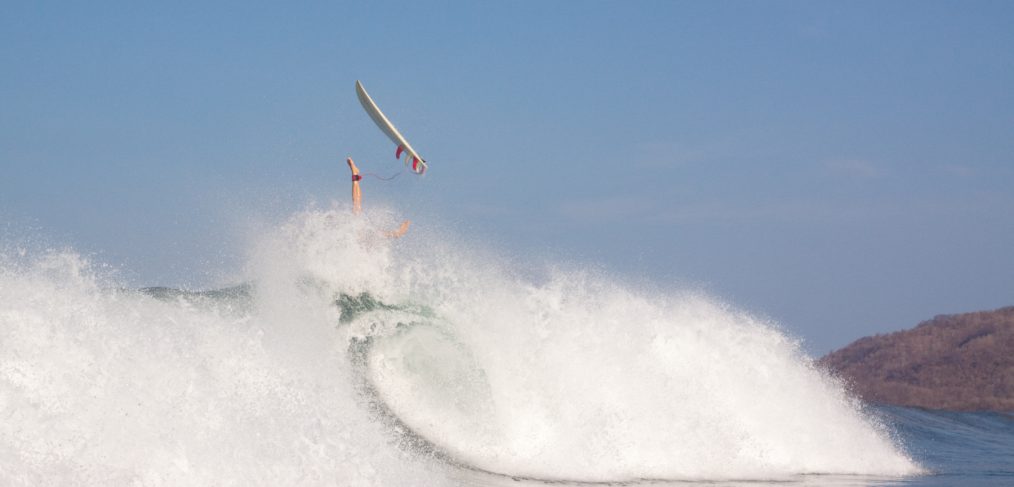
Failure
Only those who dare to fail greatly can ever achieve greatly.
~ Robert F. Kennedy
Failure is an option.
What’s the worst thing that can happen?
As we go through our lives, we each make decisions about what we are going to do – in our jobs and in our personal lives, the big things and the small things, the important and the trivial. Part of what goes into those decisions are the consequences if we fail.
If we think we might fail, we worry that we’ll waste our time, that we could get hurt or embarrassed, or that the consequences will be dire. We fear failure. We worry about failure. We try to avoid failure.
But if we only do things that guarantee success, we are doing ourselves a disservice. We are not exploring our own personal boundaries. We are not testing ourselves. We’ll never find out what we’re made of.
Baseball players know all about failure. Every time they step up to the plate, they are statistically way more likely to fail than to succeed. In each failure, they learn something about their approach, their thought process, their assumptions, and their execution. Each failure is an exercise in gathering data and becoming better.
Our relationship to failure can have huge implications for our success. If we allow that failure is a possibility, we open ourselves to the possibility of greater success.
When I was younger, I was way cockier but less confident. This may seem like a contradiction, and it is. I was always willing to try things, but in my head, I knew I might fail. Living this contradiction worked for me. Even when I didn’t think I was up to something, I did stuff anyway. I often thought I would probably fail, but if I didn’t, that would be cool (yes, that’s the kind of deep thinker I was in those days). I eventually experienced successes, so as my youthful bravado went down, my confidence went up.
Sometimes I did fail. I had some huge, catastrophic, sensational failures: high school football, first marriage, pilot career, music career; the list goes on. Sometimes I was humiliated, embarrassed, and regretful, but it was part of a rich, full life that was also filled with big, sensational successes. If I had to do them all over again, I might not fail at the same things, but I would find other things at which I would fail. If I didn’t have those failures, I wouldn’t be the person I am—I wouldn’t know myself as well as I do. I wouldn’t change a thing.
When some people think about failure, they tend to fall into a worst-case scenario fixation. This can have emotional and even physical manifestations. They can become frozen with fear and sick with worry.
We shouldn’t ignore the potential worst-case scenario if we fail. In fact, an honest and realistic picture of failure can sometimes help us to perform better. If we know the potential pitfalls and can be motivated by avoiding negative consequences, we may be able to use these to our advantage and perform better. Rather than letting potential failure impede us, we can use it to help us.
We can also use negative scenarios to help with planning and preparation. The more we understand the nature of failure, the more we can work toward avoiding those elements of what we do that might lead to failure. All our preparation and planning depend on our awareness of failure as well as our path to success. What to avoid and what to stress—they are two sides of the same coin.
There are some scenarios in which failure can have very dire consequences. A surgeon, for example, has someone’s life in his or her hands, and failure might mean death. Those who face severe consequences if they fail can mitigate those consequences through a more intense version of what everyone does to mitigate failure. They rigorously plan, they go through simulations, and they consult with experts; in short, they do everything they can to avoid failure. They mitigate the risk and learn from the past. There is still a risk of failure—there always is—but they do everything they can to minimize this risk.
It can be helpful to consider how we decide what is or isn’t a failure. For example, I’m an awful golfer. I mean really bad. I stink. But I continue to play golf. Am I failing at the game? It depends on how I think about it. Am I spending quality time outside in beautiful settings in the company of good friends and family? Yes! Am I getting a little bit better every time? Yes! (Well, a very little bit better.) Am I getting a good score? Absolutely not! Some would say my failure is reflected in my score, but I would say my success is reflected in my experience.
Why we do things is as important as how we do things. When it comes to failure, the why is equally important.
A failure is not someone who fails. A failure is someone who is afraid to fail.



